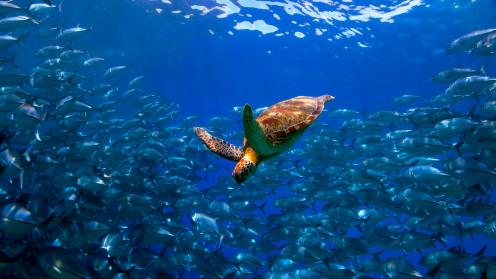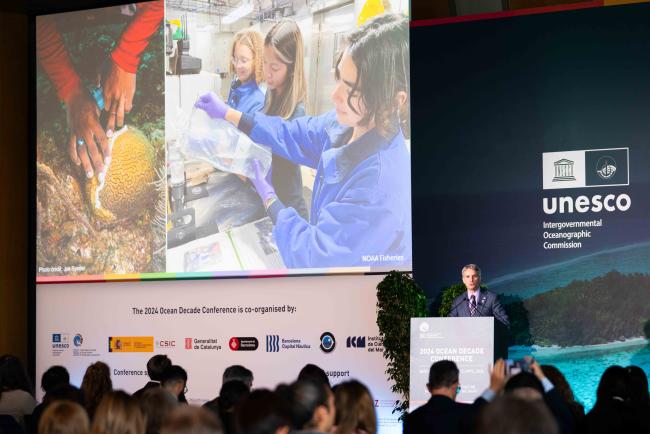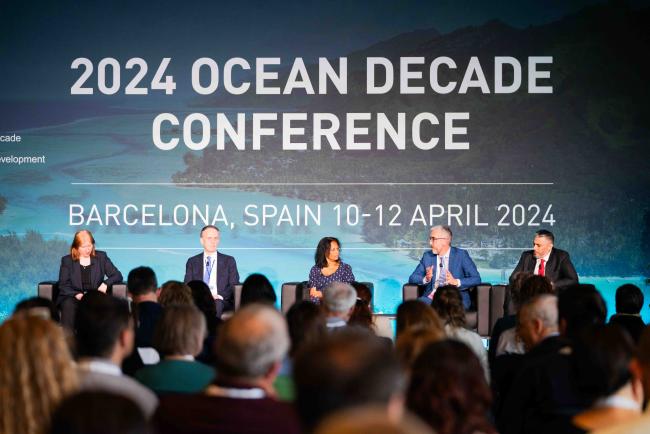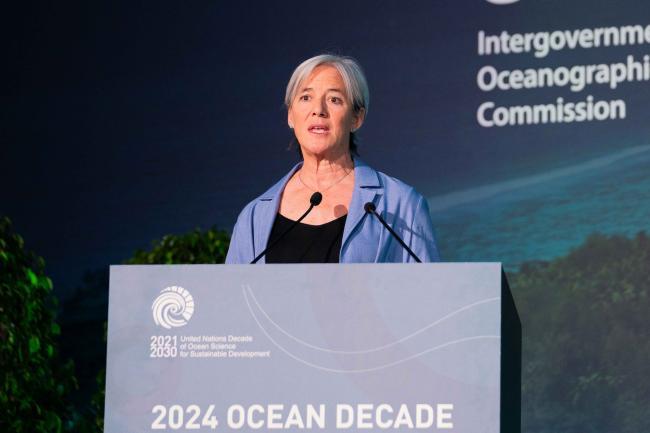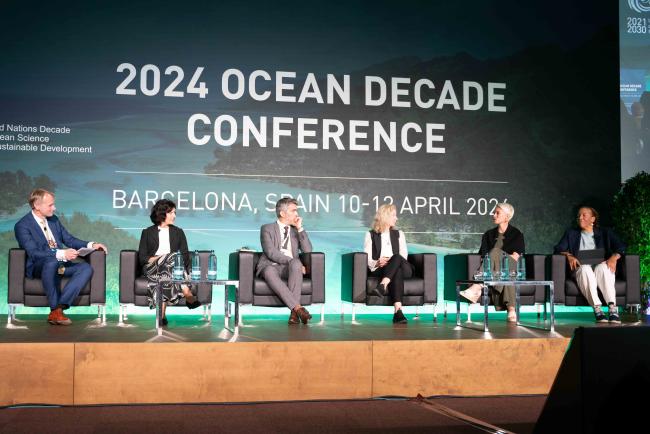Science and solutions for sustainable and resilient ocean economy, and for a safe and predicted Ocean were the two theme tackled in plenary and in parallel sessions on the second day of the Conference.
The morning session addressed Ocean Decade Challenges 3 and 4, related to “Sustainable Ocean Economy” and “Sustainable Blue Food,” respectively. A keynote address was dilivered by Steven Thur, National Oceanic and Atmospheric Administration (NOAA), US. Thur recognized that “science alone is not sufficient,” calling for effective communication and coordination between science and society.
In the ensuing panel discussion, Shakuntala Thilsted, Consultative Group on International Agricultural Research (CGIAR), suggested orienting research and innovation towards consumption rather than production of aquatic food. Other panelists addressed: Catalonia’s experiences in implementing a system of fisheries co-management; the need for practical expertise alongside scientific knowledge; and the role of the Union for the Mediterranean in fostering political will, building partnerships, and providing technical support.
Participants split into four parallel sessions to discuss the draft white papers for each of the two Challenges.
In the session on sustainable blue food, speakers noted a shift in the objective from “feeding” to “nourishing” the global population, in line with a science that supports a “one food system” approach. Ten expert presentations addressed the need to update the scientific advisory process and systematically integrate data gathered by industry. The ensuing discussion addressed topics such as: ensuring that knowledge is co-created and co-used; localizing data through training; and addressing food loss and consumption patterns.
Speakers in the session on a sustainable and equitable ocean economy emphasized that strategic partnerships should be inclusive and collaborative across sectors and produce locally adapted solutions. They also underscored the need for private-sector adoption of sustainable practices and investments in green technologies. Participants heard presentations from ten scientific and industry professionals, including on successful oceanic governance models.
The afternoon sessions focused on Ocean Decade Challenges 6, 7 and 8, on coastal resilience, observations, and data and predictions, respectively. Dwikorita Karnawati, Head of the Indonesian Agency for Meteorology, Climatology and Geophysics (BMKG), gave a keynote speech on gaps and strategies for a safe and predicted Ocean.
Panelists discussed how to deliver more useful and impactful information; user-friendly data and fit-for-purpose observation systems; and plans to connect socio-economic and environmental data for decision-making tools on all levels.
Following the plenary, participants split into six parallel sessions to discuss the draft white papers for each of the three Challenges.
The session on coastal resilience underlined the dire need to foster resilience in light of worsening ocean hazards. Nine experts were made presentations, including on coordinating and disseminating information about hazards among coastal communities and the value of mangroves as a nature-based solution to protect against coastal erosion and flooding. The discussion touched upon: involving fisherfolk in data collection for early warning systems; anthropogenic geological hazards; disasters as a social construct; and the impact of climate change on coastal resilience.
In the session on ocean observations, speakers noted that these are the foundation on which other Challenges depend, and are deployed by many different users. Nine technical presentations followed on various issues related to this Challenge, including on satellite mapping to monitor total suspended matter in coastal waters in Morocco. In the ensuing discussion, it was noted that current global observatories were made to respond to yesterday’s questions, not today’s.
The session on data and predictions featured ten expert contributions, including on a collaborative approach to remote monitoring and modelling of the global oceans. In the following discussion, one participant lamented the lack of investment from private entities in data collection and sharing. Some highlighted successful partnerships between private and scientific sectors.
To receive free coverage of global environmental events delivered to your inbox, subscribe to the ENB Update Newsletter.
All ENB photos are free to use with attribution. For the Ocean Decade Conference, use: Photo by IISD/ENB | Mika Schroder
